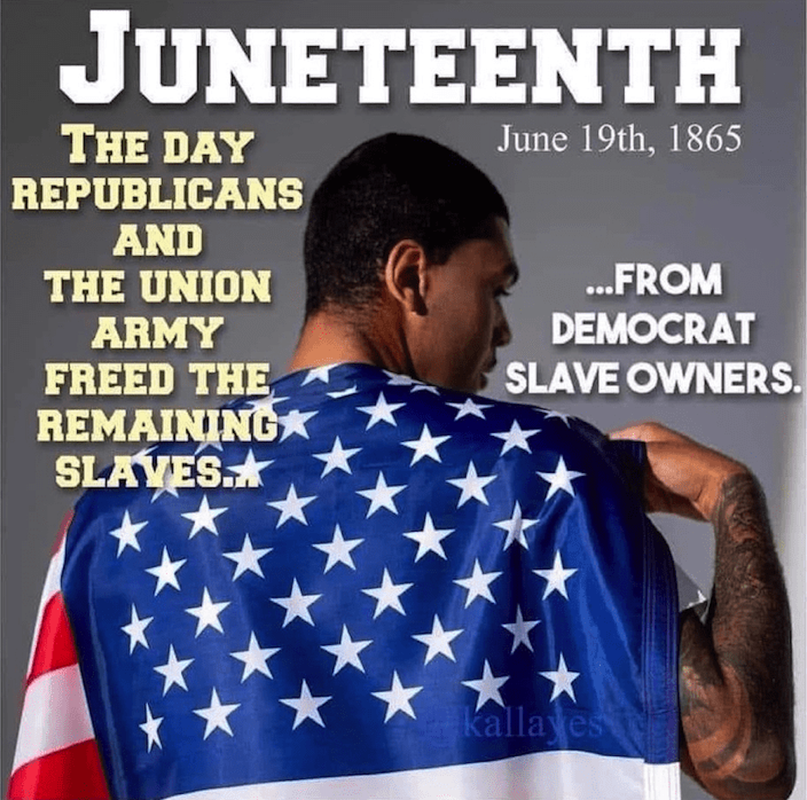
Posted on 06/19/2024 1:15:36 PM PDT by xxqqzz
Every year on April 16, Washington, DC commemorates the anniversary of the signing of the 1862 DC Compensated Emancipation Act, the law that abolished slavery in the District of Columbia and freed 3,000 individuals in bondage in the nation’s capital. As we honor this day and celebrate independence, we also recognize the struggle — historically and in our current moment — to achieve true freedom and justice for all.
(Excerpt) Read more at georgetown.edu ...
The more Federal Holidays, the less damage DC can do to the nation..................
Sure, we don’t have a federal holiday in April.
Get over it - it was over a hundred-thirty years ago. How many days/months do they need? I propose Feb. 30th for all inclusive day.
Signed by a Republican president to free slaves owned exclusively by Democrats.
What is Emancipation Day?
The EmDC Compensated Emancipation Act of 1862, also known as the District of Columbia Compensated Emancipation Act, was a significant legislation passed by the United States Congress on April 16, 1862. The act freed all slaves in the District of Columbia and compensated their owners up to $300 for each freed person.
The Proclamation of Emancipation, officially Proclamation 95, was a presidential proclamation and executive order issued by United States President Abraham Lincoln on January 1, 1863, during the American Civil War. The proclamation declared that all slaves in the areas of the Confederate States of America that were still in rebellion against the United States were free, effective immediately.

The EmDC Compensated Emancipation Act of 1862, also known as the District of Columbia Compensated Emancipation Act, was a significant legislation passed by the United States Congress on April 16, 1862.
Passed the Senate, 3 Apr 1862, (29-14)
Passed the House, 11 Apr 1862, (92-39)
Signed into law 16 Apr 1862 by President Lincoln. Governor Robert Wicliffe, a friend of Lincoln, sought a few days delay so he could remove his slaves from the District of Columbia. And for this purpose, Lincoln delayed signing the bill into law until April 16, 1862.
COLLECTION OF THE ILLINOIS STATE HISTORICAL LIBRARY
VOLUME XX
LINCOLN SERIES VOLUME II
THE DIARY OF ORVILLE HICKMAN BROWNING
VOLUME I, 1850-1864
Edited with Introduction and Notes by THEODORE CALVIN PEASE
University of Illinois
and
JAMES G. RANDALL
University of Illinois
Published by the Trustees of the
ILLINOIS STATE HISTORICAL LIBRARY
SPRINGFIELD, ILLINOIS
1925
[excerpt at page 541]
Monday Apl 14, 1862. In Senate. At night went to Presidents to lay before him the bill to abolish slavery in the District of Columbia. Had a talk with him. He told me he would sign the bill, but would return it with a special message recommending a supplemental bill making savings in behalf of infants & and also some other amendments. He further told me he regretted the bill had been passed in its present form — that it should have been for gradual emancipation — that now families would at once be deprived of cooks, stable boys &c and they of their protectors without any provision for them. He further told me that he would not sign the bill before Wednesday — That old Gov Wickliffe had two family servants with him who were sickly, and who would not be benefitted by freedom, and wanted time to remove them, but could not get them out of the City until Wednesday, and that the Gov had come frankly to him and asked for time. He added to me that this was told me in the strictest confidence.
Disclaimer: Opinions posted on Free Republic are those of the individual posters and do not necessarily represent the opinion of Free Republic or its management. All materials posted herein are protected by copyright law and the exemption for fair use of copyrighted works.